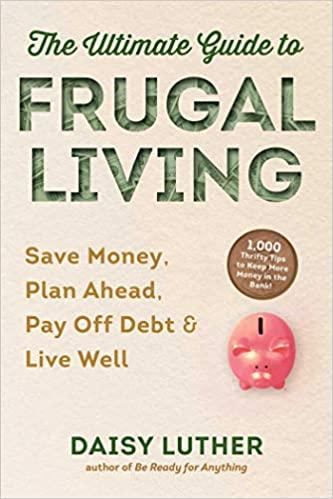Question
Read the Case Campbell Soup Co. v. Wentz in the text. Answer the following questions: 1. What were the terms of the contract between Campbell
Read the Case Campbell Soup Co. v. Wentz in the text. Answer the following questions: 1. What were the terms of the contract between Campbell and the Wentzes? 2. Did the Wentzes perform under the contract? 3. Did the court find specific performance to be an adequate legal remedy in this case? 4. Why did the court refuse to help Campbell in enforcing its legal contract? 5. How could Campbell change its contract in the future so as to avoid the unconsionability problem?
Case Study: Campbell Soup Co. v. Wentz
172 F.2d 80 (3rd Cir. 1949)
Facts: Per a written contract between Campbell Soup Company (a New Jersey company) and the Wentzes (carrot farmers in Pennsylvania),the Wentzes would deliver to Campbell all the Chantenay red cored carrots to be grown on the Wentz farm during the 1947 season. Thecontract price for the carrots was $30 per ton. The contract between Campbell Soup and all sellers of carrots was drafted by Campbell andit had a provision that prohibited farmers/sellers from selling their carrots to anyone else, except those carrots that were rejected byCampbell. The contract also had a liquidated damages provision of $50 per ton if the seller breached, but it had no similar provision in theevent Campbell breached. The contract not only allowed Campbell to reject nonconforming carrots, but gave Campbell the right todetermine who could buy the carrots it had rejected. The Wentzes harvested 100 tons of carrots, but because the market price at the timeof harvesting was $90 per ton for these rare carrots, the Wentzes refused to deliver them to Campbell and sold 62 tons of their carrots toa farmer who sold some of those carrots to Campbell. Campbell sued the Wentzes, asking for the court's order to stop further sale of thecontracted carrots to others and to compel specific performance of the contract. The trial court ruled for the Wentzes and Campbellappealed.
Issues: Is specific performance an appropriate legal remedy in this case or is the contract unconscionable?
Discussion: In January 1948, it was virtually impossible to obtain Chantenay carrots in the open market. Campbell used Chantenay carrots(which are easier to process for soup making than other carrots) in large quantities and furnishes the seeds to farmers with whom itcontracts. Campbell contracted for carrots long ahead, and farmers entered into the contract willingly. If the facts of this case were thissimple, specific performance should have been granted.
However, the problem is with the contract itself, which was one-sided. According to the appellate court, the most direct example ofunconscionability was the provision that, under certain circumstances, Campbell may reject carrots, but farmers cannot sell them anywherewithout Campbell's permission. Though the contract was legal, it was wrong for Campbell to ask for the court's help in enforcing thisunconscionable bargain (one that "shocks the conscience of the court"). The court said that the sum of the contract's provisions "drives toohard a bargain for a court of conscience to assist."
Holding: The judgment of the trial court in favor of the farmers is affirmed.
Step by Step Solution
There are 3 Steps involved in it
Step: 1

Get Instant Access to Expert-Tailored Solutions
See step-by-step solutions with expert insights and AI powered tools for academic success
Step: 2

Step: 3

Ace Your Homework with AI
Get the answers you need in no time with our AI-driven, step-by-step assistance
Get Started


